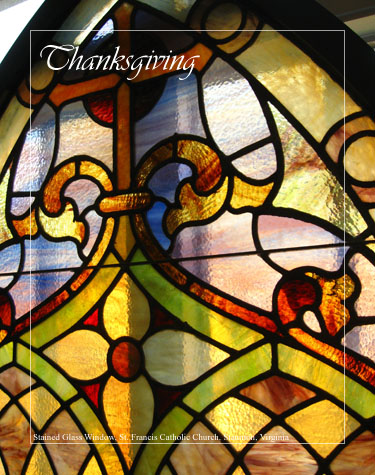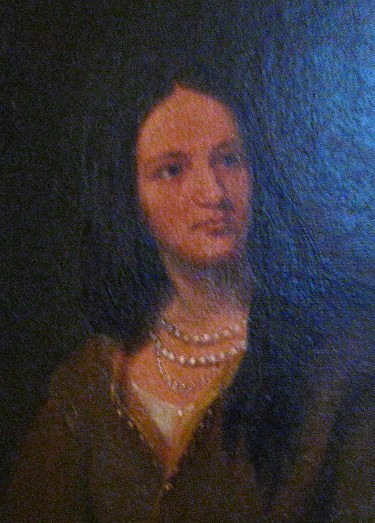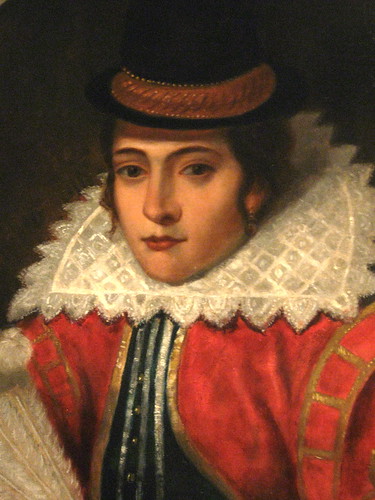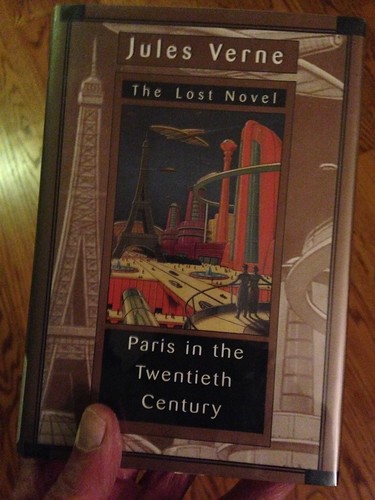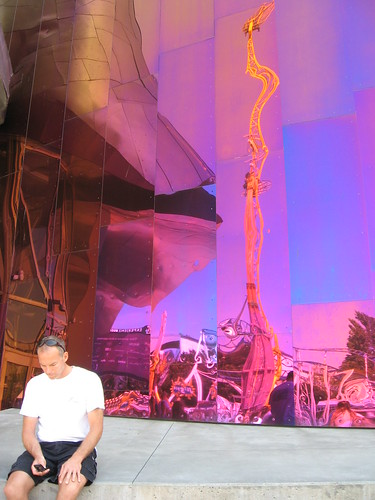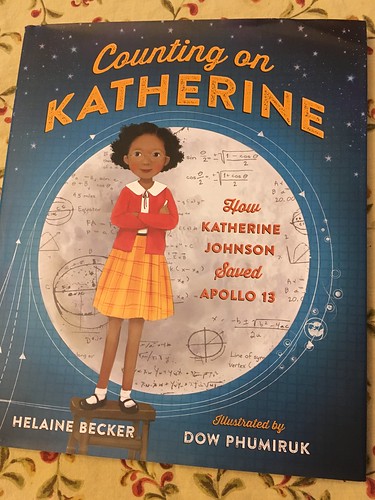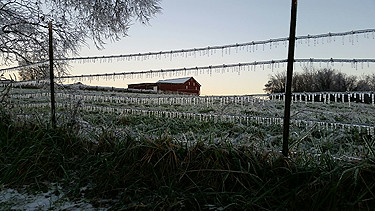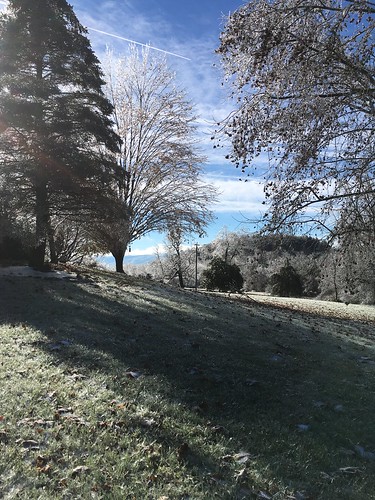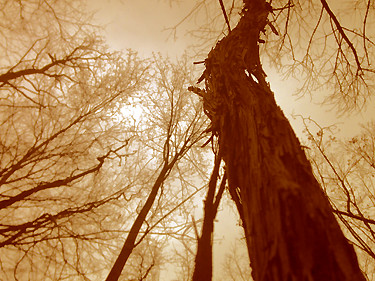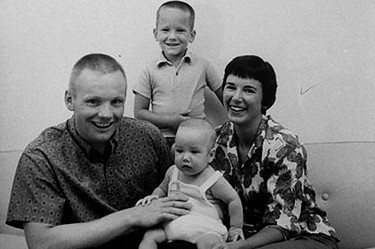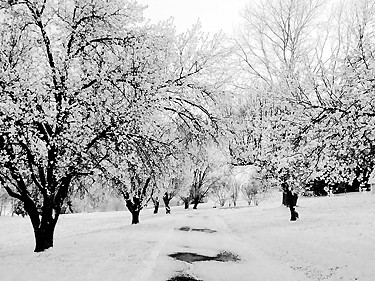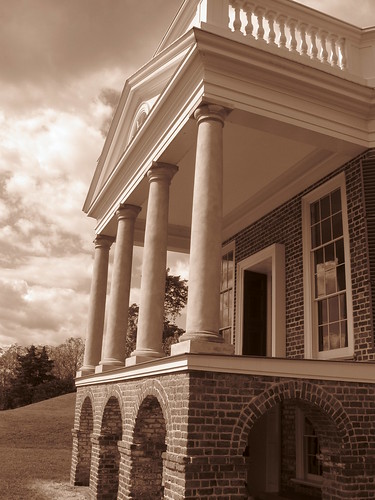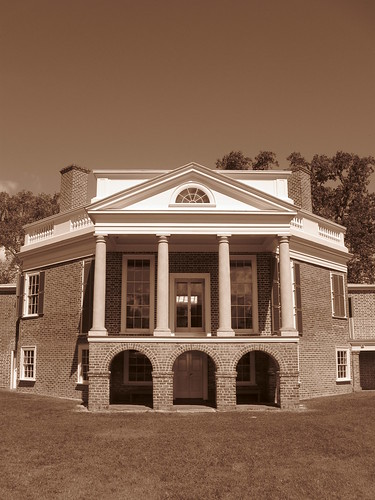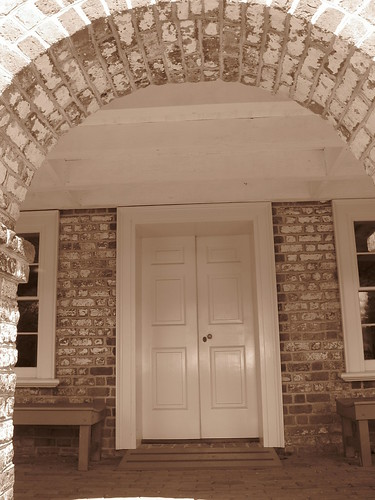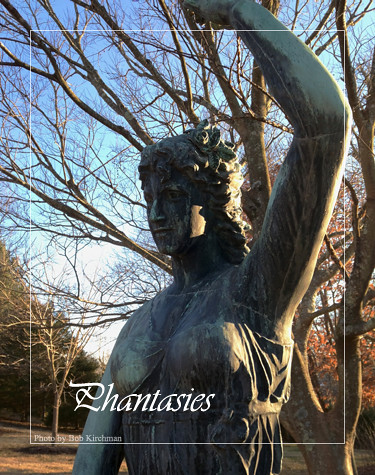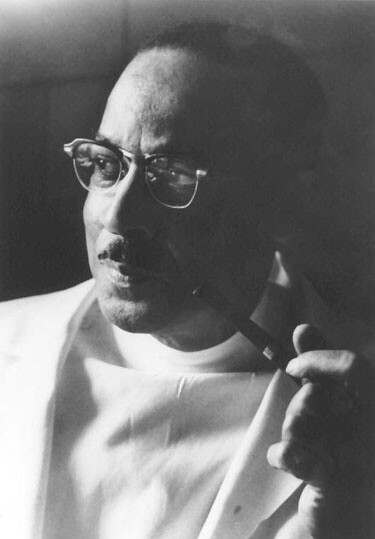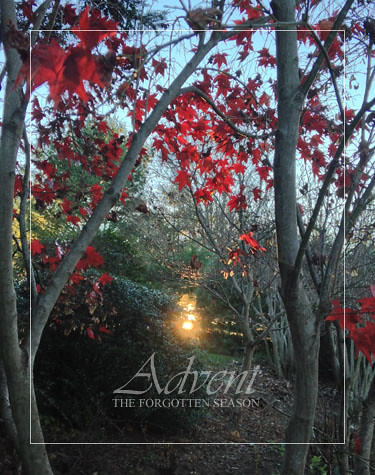
Volume XV, Issue XXII
A Repeat of One of Our Favorite Issues
The Forgotten Season
The turkey leftovers were still cooling when the much media hyped 'Black Friday' events began. In a Long Island Wal Mart, a young associate was trampled to death as bargain hunters literally broke down the doors. A young man had to die because twenty dollars could be saved on flatscreens. Managers closed the store and someone actually was irate that he couldn't get in. Come on, if a colleague has died, its 'Game Over' on the shopping frenzy. Close the store and try to help the poor man's significant others. To hell with reopening for the remainder of the day! Management reopened the store at one o'clock that afternoon. Satirical publication 'The Onion' came out with a story where thousands were 'reported' to have died in Black Friday shopping. I did not find it funny. One death to satisfy the greed gods is too many. Our prayers go out to the family and friends of this young man. May they find comfort.
Lost in the madness of Black Friday, Cyber Monday and yes, even Small Business Saturday is the wonderful celebration of Advent. The high churches still celebrate it. It is a time of waiting and preparation for the miracle to come. It is so un-modern! It ties us to history. The traditions of Judaism are full of waiting. Abraham and Sarah saw the child of promise when they were way past the age of child bearing. I sometimes think of one-hundred year old Sarah as a preschool parent and join her in her laughter! Then there was Joseph and his imprisonment, followed by hundreds of years of exile in Egypt. We often think about the Promised Land, but we forget that all Promised Lands seem to require a prep!
In fact, there came a time when people forgot the lessons of the brick kilns and lost the Promised Land to the Babylonians and the Persians. The Temple, center of worship, was destroyed. But it was in this time of living as expats that the community of the Synagogue strengthened the people anew. Ezra and Nehemiah presided over a return to the land of promise. Again, the promise required a prep. As the exiles built the prosperity of Persia, they prepared themselves for the time when they would build their own.
A second Temple was built. The exiles returned. Then came the great empires of the Greeks and the Romans. The Temple was rebuilt, but the heavy hand of Roman rule presided over a time of trouble. Many looked to the future Messiah to put things aright. Indeed, there were many who claimed to BE Messiah. They came and went. But in a time when Heaven seemed so distant, there came another child of promise... to a couple way past child bearing. John the Baptist, a "Voice crying in the wilderness," came saying: "Prepare ye the way of the Lord." At the same season of history, his mother Elizabeth's cousin Mary came to visit.
Mary had been visited by an angel and told that she, a virgin, would bear the child of promise. Though this was an incredible blessing, she faced the prospect of unwed motherhood... in a culture that stoned you for it. Her betrothed, however, had also been given a message from Heaven, that he should take her for his wife. What incredible faith and love! When I chose my Confirmation name, as a boy, I took the name Joseph. It was not that I ever thought I could match such selfless love, but that I so admired it! Even to this day, some of the people I admire the most are those men who have stepped into the lives of children they did not physically father, and yet have earned the name Dad nonetheless! These men live as both an example and a challenge to me. Some of them are my juniors in years, but they far surpass in their maturity!
Such are the lessons we miss if we merely content ourselves with instant gratification. There is an old saying: "Rome wasn't built in a day." Indeed our own nation cast off from its sure position as an English colony to pursue an uncertain future. In 1812 England returned to burn the young country's capital. The White House is so called because its sandstone outer walls had to be painted after the burning left them permanently blackened. By the middle of the Nineteenth Century, however, Isambard Kingdom Brunel was building great ships to strengthen Bristol's trade with America. A hundred years after barely surviving her revolution, the nation we know had taken her place as a world power.
Why Advent is Important to Artists [click to read]
Advent is a celebration of the incarnation. It is perhaps the greatest of Christian mysteries, that the Creator G-d would voluntarily and willfully become Man. The Infinite would clothe Himself in the finite. G-d would love us to such a degree that He would become one of us, G-d with Us, Emmanuel." -- Manuel Luz
We do well to celebrate Advent, though it is largely forgotten in the popular narrative, because it causes us to pause and prepare. In a world where preparation is limited to four years it does us good to remember the lessons of centuries. Advent allows us to step back from our busy lives and ponder timeless truths... like the man that the Bethlehem baby grew to be. He too died, some say on a Friday, but his death was not just his own. Did He indeed carry the sins of the world? The account of His Resurrection causes us to ponder mysteries far greater than ourselves and our puny wants. We should indeed consider the life of this man.
Art is incarnational by nature. Art is the incarnation of concepts and ideas and emotions onto a canvas or a page or a stage or a screen. The act of art is to take these ideas and flesh them out in our artistic mediums—the visual arts, the literary arts, dance and movement, cinema and videography, music, theater. In the same way, our Artist G-d takes His love for us and fleshes it out by entering into the universe by becoming human. Jesus, “through Him all things were made,” becomes man." -- Manuel Luz

Autumn Evening. Photo by Bob Kirchman.
Photos Around Staunton

Snow highlights this house in Staunton, Virginia, designed by noted architect T. J. Collins. Photo by Bob Kirchman
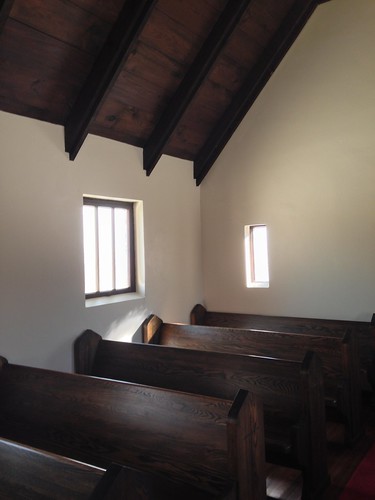
The firm of T. J. Collins also designed The Church of the Good Shepherd which was built in 1924. The sanctuary originally had oil lamps. Photo by Bob Kirchman

Isn't this a great message! When I saw this, I smiled back!
Photo by Bob Kirchman
Paul Smith's Typewriter Art
A man with severe cerebral palsy creates amazing compositions on a typewriter!
Albert Einstein, Extraordinary Genius
Astound the Age

Michel Dufrénoy's Guide to Our Past Century
By Bob Kirchman
Copyright © 2018, The Kirchman Studio, all rights reserved
In 1863, right after the publication of Five Weeks in a Balloon, Jules Verne presented his publisher Jules Hetzel the manuscript for Paris in the Twentieth Century. Hetzel rejected it. Verne’s great-grandson, Jean Verne discovered the manuscript and published it. The story follows young Michel Dufrénoy through a future world that has forgotten the influence of true art and fallen into a harsh utilitarianism. The story ends with Dufrénoy collapsing in the snow. Here I engage in a bit of ‘fan literature’ as I offer a sequel to Paris in the 20th Century.
So this is what death is like” thought Michel Dufrénoy. His hand turning blue clutching the ruined violets. The demon of electricity no longer tormented his mind. Instead he heard what must have been the voice of an angel. As his life ebbed away the young poet heard a lovely voice… strangely familiar. Something stirred him to a heightened consciousness and the voice grew stronger. Now imperative! “Wake up!” His mind jolted to alertness and Michel thought to himself “this cannot be!” Yet, in the thoroughness of his search, he had stumbled into this precinct most thought deserted… yet there was the voice… again! Begging him to rouse! Dufrénoy struggled to rise and fell unconscious back into the snow.
Consciousness returned and Michel found himself lying on a mat in some sort of subterranean conduit. It was a round tube lined with brick and its walls bore the evidence of seeping water, the stains confirming the young man’s suspicion that he was indeed underground. At this moment, anyway, the tunnel was dry. Michel was wrapped in blankets and surrounded by heated bricks. He was coming back from the dead! A single light dangled from a wire in the tunnel and though it was electric, it was dim – an antiquated device which gave a very limited light to the catacomb in which it shown. As he stirred, an old woman emerged from the darkness to check on him. “How do you feel?” she asked. Michel Dufrénoy could only manage a groan.
So, what had befallen our young protagonist? Though he would not remember it, his new benefactor told him the story as he regained his faculties. Indeed he had fallen in the snow of the cemetery and was almost dead when a member of their group returning to the catacombs found him. This person tried to rouse him but when she could not, convinced some of the community to risk bringing him inside. The tombs of major cities often were places not inhabited – but providing shelter to those outside of the civilization proper. In Rome, the catacombs had provided space for the faithful to worship during the harsh reign of unfriendly emperors. Here in the mausoleum district was a bit of abandoned air and steam tunnel in which lived a community in exile.
The entrance to this place was a well-hidden shaft built for maintenance that was inside the precincts of the cemetery. The falling snow had made it imperative that they refrain from sorties outside the tunnels so as not to leave footprints but one of their members required medicine and so a close relative had volunteered to carefully leave the community and return. She was the one who found Michel. There are many stories, particularly from the great American war a hundred years before, of departed loved ones appearing in dreams to their most cherished as they leave this world and Michel pondered the voice he recalled so clearly in his brief moment of regained consciousness in the snow. Indeed the ruined violets spoke to a love that would sacrifice – a higher love from an abandoned time.
He thought about the modern technocrat’s abandonment of faith in the Divine – and the ‘miracles’ recorded in the past that the moderns derided. Even Michel was no strong believer. The church existed to instill order in society and bury the dead. It was not a good thing to have religious fervor as that was often the stuff of conflict. But the Twentieth Century had experienced great travail as a result of diminishing faith in other ways. True, there were no longer wars over doctrines but the life of family and community had withered as personal satisfaction became the only motivator in society. Michel had never thought much about the Divine, but now he pondered his strange new circumstances and the vision that had preceded them.
Chapter Two
When Michel Dufrénoy regained a bit more consciousness he was delighted to see his old friend Monsieur Richelot! The old professor warmly embraced his pupil and after some amazed pleasantries, told his story. “Indeed I was being evicted for not paying my rent. My tenure as a teacher came to an end with the withdrawal of my last miserable student. One of my old colleagues came to visit me as I was cleaning out my office and let me know of this place. Lucy and I have joined the classics in exile, I fear. You must, however, be extremely grateful that she dared to go out for my much needed medicine, for it was she who found you, almost frozen to death! Be assured she convinced us to go outside at great risk and bring you inside. Thankfully the snow keeps falling and we have other entrances when we need them.”
At that moment Lucy emerged from the darkness, her eyes saying more than any words, even those of a great poet, could ever hope to express. Michel tenderly squeezed her hand, apologizing for not successfully conveying the violets to her. At that she raised her other hand displaying the ruined blossoms. Sweet laughter filled the illuminated space in the tunnel!
What followed was a long and slow period of healing. The three friends discussed their cherished literature and read aloud from volumes Richelot had been able to bring into the catacomb. Meals were bland, assembled from a forgotten cache of survival grains, primarily rice, that had been discovered in a forgotten shelter from times when men still waged war. Mushrooms, grown in the tunnels, provided flavor and some additional nourishment but alas, there was no way to create the richness of flavor that most had enjoyed above ground. Michel asked about Quinsonnas. Was there any news of his old colleague? Richelot knew nothing. Would the pianist emerge to ‘Astound the Age?’ No one knew. Gradually Michel met the other members of the community. There were poets, painters, musicians and dreamers. Misfits all!
As the young man grew stronger, it was time for him to enter into the life of the community. Richelot’s recommendation was all that it required. Now he was party to the deeper discussion of what would become of them. It was already decided that modern France held no place for them, but the plan was to immigrate to French America. How would they pay for passage in steerage of some vessel like Leviathon IV, the young man wondered? Richelot explained, “There are others, who you will not see. They are still in the employ of industry and commerce, but their hearts are with us. We have entered into a pact that will take us all to the wilds of Quebec and the acquisition of some land on which we may farm… and create! Will you come with us?”
Dear Monsieur Richelot! You know my answer.”
And so, young Dufrénoy entered into the life of the community. He often ran the dangerous errands necessary to maintain contact with the working members of the resistance. His skill at stealth made him an important agent of the little group and though there was no wealth to the group as yet, he mustered his courage to pursue talk of a future with Lucy. He could make no promise of established wealth, but he could offer the strength of a pioneer. He would work like a dog to provide for his family and in a new world, Hopes would become reality. Though he had lost the manuscript, Michel recalled the best of his words and began to write anew.
The Winter of the great freeze grudgingly came to an end. For the next year the group continued to work and save. Dufrénoy made his way into the outlying suburbs of Paris and secured employment as a clerk. He was able to rent a bunk in a modest dormitory and so contribute more to the cost of passage. With the blessing of the community he purchased some new clothes as well. His trips to the catacombs were of necessity few, but one day he appeared in his new clothes with a bouquet of local violets and a basket of nice foods and wine. “Monsieur Richelot,” he began, “I have to ask you a very important question.”
So began the engagement of Monsieur Dufrénoy and Lucy. The wedding would take place on the first day the ship was in international waters!
Chapter Three
Dufrénoy returned to his work a man with a mission. His employers thought him ambitious and seeking advancement. He soon rose to the level of the management he despised but kept to his simple lodgings. This required no small feat of stealth in itself, for an upwardly mobile young man was expected to live in the high opulence of self-indulgence he was entitled to. Michel deftly acquired a set of house plans and spent a bit of break-time in marking them up, changing room dimensions and moving walls. Possibly the dwelling so rendered could be built in Quebec. On weekends he sometimes went to look at land. His coworkers, convinced of his energies being expended in pursuit of the perfect dwelling, wondered not at his current economy of living.
His closest comrade at work was a Monsieur Jean Dumont, a clerk as he was, who had some interest in the arts, though he professed no talent. They occasionally discussed literature together though Dumont’s tastes disturbingly favored such works as ‘Song of the Turbines.’ Still, he was eclectic enough in his tastes that he possessed some of the old volumes. His reading included the works of the great engineer Claudius Crozet, who had built railroads in America and Isambard Kingdom Brunel. Rather than a crass fascination with industrialism in itself, Dumont admired these engineers of French descent for the poetry of their designs. Brunel’s bridges, though works of infrastructure, were works of art as well. Often his bridges incorporated Egyptian themes and his arches were graceful to behold. His Clifton Suspension Bridge was so beautiful it became the Iconic symbol of an English City.
Dumont and Dufrénoy worked for a large company that specialized in building bridges and highways. They both lamented the utilitarian nature of the projects they built in 1962. They also seemed to share a more frugal outlook in personal matters than their colleagues and often enjoyed a drink together, eschewing the lavish evenings enjoyed by their fellows. Jean had a modest house near the company which he lived in with his wife and children. Eventually he offered Michel a very reasonable rental of his extra bedroom. Since it was not much more than the dormitory and there was no commuting expense, it was a deal quickly sealed. On the occasional weekends when he went to see Lucy, there was nothing at all suspicious about it, save he simply disappeared from view for a few days.
The next year progressed rapidly and soon it would be time to sail. Since he lived ‘above ground,’ there was nothing unusual about Michel’s resignation and announcement that he was off to the Americas. Surely he would find employment with those audacious companies proposing even bigger motorways and a bridge from America to Asia! The future was bright indeed and Monsieur Dufrénoy would be there to take part in it! Passage was secured on a German vessel, the Wilhelm, for the Spring of 1964.
(to be continued)

In 1961, Russian engineer Peter Borisov proposed a dam across the Bering Strait that would carry a superhighway between Siberia and Alaska. The dam was planned as a climate modifying proposal that Borisov believed would warm Siberia. [1.]

Volume XII, Issue XIV
Phantasies
By George MacDonald, Chapter 8
I am a part of the part, which at first was the whole."
~ Mephistopheles in Johann Wolfgang von Goethe's Faust.
My spirits rose as I went deeper; into the forest; but I could not regain my former elasticity of mind. I found cheerfulness to be like life itself--not to be created by any argument. Afterwards I learned, that the best way to manage some kinds of pain fill thoughts, is to dare them to do their worst; to let them lie and gnaw at your heart till they are tired; and you find you still have a residue of life they cannot kill. So, better and worse, I went on, till I came to a little clearing in the forest. In the middle of this clearing stood a long, low hut, built with one end against a single tall cypress, which rose like a spire to the building. A vague misgiving crossed my mind when I saw it; but I must needs go closer, and look through a little half-open door, near the opposite end from the cypress. Window I saw none. On peeping in, and looking towards the further end, I saw a lamp burning, with a dim, reddish flame, and the head of a woman, bent downwards, as if reading by its light. I could see nothing more for a few moments. At length, as my eyes got used to the dimness of the place, I saw that the part of the rude building near me was used for household purposes; for several rough utensils lay here and there, and a bed stood in the corner.
An irresistible attraction caused me to enter. The woman never raised her face, the upper part of which alone I could see distinctly; but, as soon as I stepped within the threshold, she began to read aloud, in a low and not altogether unpleasing voice, from an ancient little volume which she held open with one hand on the table upon which stood the lamp. What she read was something like this:
So, then, as darkness had no beginning, neither will it ever have an end. So, then, is it eternal. The negation of aught else, is its affirmation. Where the light cannot come, there abideth the darkness. The light doth but hollow a mine out of the infinite extension of the darkness. And ever upon the steps of the light treadeth the darkness; yea, springeth in fountains and wells amidst it, from the secret channels of its mighty sea. Truly, man is but a passing flame, moving unquietly amid the surrounding rest of night; without which he yet could not be, and whereof he is in part compounded."
As I drew nearer, and she read on, she moved a little to turn a leaf of the dark old volume, and I saw that her face was sallow and slightly forbidding. Her forehead was high, and her black eyes repressedly quiet. But she took no notice of me. This end of the cottage, if cottage it could be called, was destitute of furniture, except the table with the lamp, and the chair on which the woman sat. In one corner was a door, apparently of a cupboard in the wall, but which might lead to a room beyond. Still the irresistible desire which had made me enter the building urged me: I must open that door, and see what was beyond it. I approached, and laid my hand on the rude latch. Then the woman spoke, but without lifting her head or looking at me: "You had better not open that door." This was uttered quite quietly; and she went on with her reading, partly in silence, partly aloud; but both modes seemed equally intended for herself alone. The prohibition, however, only increased my desire to see; and as she took no further notice, I gently opened the door to its full width, and looked in. At first, I saw nothing worthy of attention. It seemed a common closet, with shelves on each hand, on which stood various little necessaries for the humble uses of a cottage. In one corner stood one or two brooms, in another a hatchet and other common tools; showing that it was in use every hour of the day for household purposes. But, as I looked, I saw that there were no shelves at the back, and that an empty space went in further; its termination appearing to be a faintly glimmering wall or curtain, somewhat less, however, than the width and height of the doorway where I stood. But, as I continued looking, for a few seconds, towards this faintly luminous limit, my eyes came into true relation with their object. All at once, with such a shiver as when one is suddenly conscious of the presence of another in a room where he has, for hours, considered himself alone, I saw that the seemingly luminous extremity was a sky, as of night, beheld through the long perspective of a narrow, dark passage, through what, or built of what, I could not tell. As I gazed, I clearly discerned two or three stars glimmering faintly in the distant blue. But, suddenly, and as if it had been running fast from a far distance for this very point, and had turned the corner without abating its swiftness, a dark figure sped into and along the passage from the blue opening at the remote end. I started back and shuddered, but kept looking, for I could not help it. On and on it came, with a speedy approach but delayed arrival; till, at last, through the many gradations of approach, it seemed to come within the sphere of myself, rushed up to me, and passed me into the cottage. All I could tell of its appearance was, that it seemed to be a dark human figure. Its motion was entirely noiseless, and might be called a gliding, were it not that it appeared that of a runner, but with ghostly feet. I had moved back yet a little to let him pass me, and looked round after him instantly. I could not see him.
Where is he?" I said, in some alarm, to the woman, who still sat reading.
There, on the floor, behind you," she said, pointing with her arm half-outstretched, but not lifting her eyes. I turned and looked, but saw nothing. Then with a feeling that there was yet something behind me, I looked round over my shoulder; and there, on the ground, lay a black shadow, the size of a man. It was so dark, that I could see it in the dim light of the lamp, which shone full upon it, apparently without thinning at all the intensity of its hue.
I told you," said the woman, "you had better not look into that closet."
What is it?" I said, with a growing sense of horror.
It is only your shadow that has found you," she replied. Everybody's shadow is ranging up and down looking for him. I believe you call it by a different name in your world: yours has found you, as every person's is almost certain to do who looks into that closet, especially after meeting one in the forest, whom I dare say you have met."
Here, for the first time, she lifted her head, and looked full at me: her mouth was full of long, white, shining teeth; and I knew that I was in the house of the ogre. I could not speak, but turned and left the house, with the shadow at my heels. "A nice sort of valet to have," I said to myself bitterly, as I stepped into the sunshine, and, looking over my shoulder, saw that it lay yet blacker in the full blaze of the sunlight. Indeed, only when I stood between it and the sun, was the blackness at all diminished. I was so bewildered--stunned--both by the event itself and its suddenness, that I could not at all realise to myself what it would be to have such a constant and strange attendance; but with a dim conviction that my present dislike would soon grow to loathing, I took my dreary way through the wood.
(to be continued after Christmas)
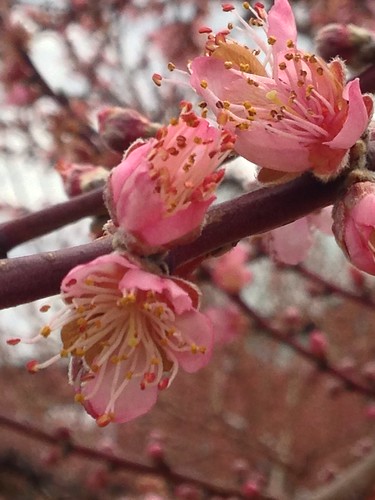


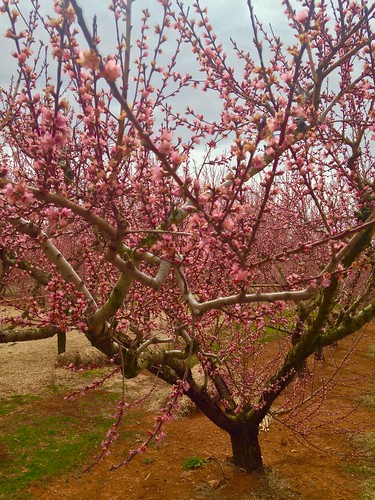


Peach Blossoms, Crozet, Virginia. Photos by Bob Kirchman
Stone Head Nature Preserve
Nashville, Indiana, By Melissa K. Hand
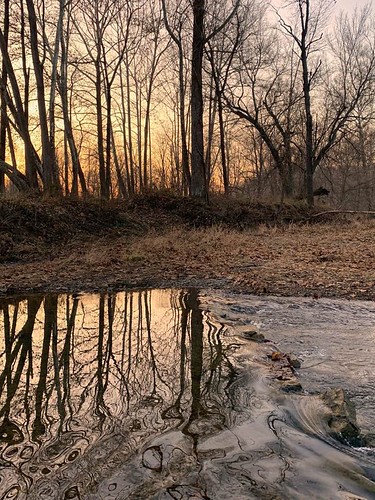
This is at Stone Head Nature Preserve in Nashville, Indiana.
Photo by M. K. Hand.
This little area is literally called Stone Head. There was once a beautiful stone head carving right here at this location, and at one time the carving had arrows pointing in different directions telling how many miles it was to certain towns. About two years ago, we drove family out there to see it. As we were pulling up, something was very off, and I thought my eyes were playing tricks on me. As we got closer, I realized to my horror that the stone head was gone. Vandals had broken the giant head off this statue and stolen it. I was so upset. I think it had been there for over 200 years. Carved from sandstone by an early Indiana settler named Henry Cross and known as Stone Head, the statue was erected to give travelers directions. Carved onto its 2-foot-tall base were directions to nearby towns. On top of the base was a likeness of a human head. The head was lopped off some time during the first week of November of 2016.
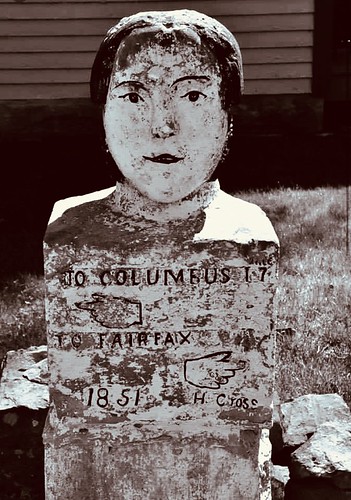
The ‘Stone Head.’ Photo by M. K. Hand.
Rationalizing Ugliness
[click to read]
By Theodore Dalrymple
Some things are too obvious for intellectuals to notice. It’s as if intellectuals were provided with a special kind of spectacles that automatically screens out what everyone else can plainly see. What, after all, is the point of being an intellectual if your perceptions are the same as everyone else’s? I recently observed an example of this strange dichotomy between the perceptions of ordinary people and those of intellectuals. Someone who did not know Paris came to visit me there, arriving by train. Knowing that Paris is regarded (rightly) as one of the most beautiful cities in the world, he was astonished by the sheer eye-scoring ugliness of the approaches to the city center. He had not expected such a thing. He asked me whether there was something wrong with him. I assured him that there was nothing wrong with either his eyesight or his aesthetic judgment; the approaches to Paris are indeed of a visual hideousness that one might expect of the capital of a Third World country that had undergone uncontrolled rapid growth. (read more)
Pursuing Beauty
By Bob Kirchman
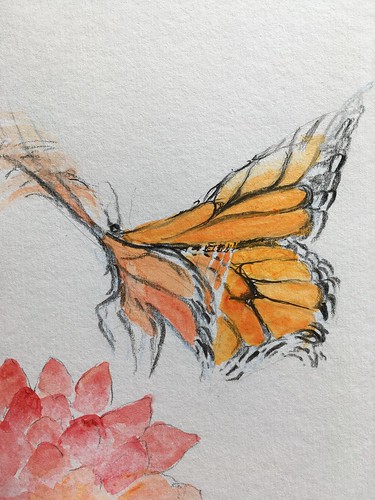
I attempted to capture the movement of a migrating monarch butterfly in this birthday card for Kristina Elaine Greer.
It was a happy time, assisting my students in painting a mural of sunflowers on a building in Staunton, Virginia. Soon I was asked to do a smaller ‘knock off’ of the mural for a gentleman in Swoope, Virginia. The monarchs were in full migration, landing regularly among the gentleman’s grape vines. I was drawn to their beautiful mystery and even painted one into the mural. Such is the draw of objective beauty – something that seems quite elusive in our time – but enough of us respond to it nonetheless. Here in THYME we have presented the thoughts of Roger Scruton [1.] and Bishop Robert Barron [2.] on that very subject.
The Apostle Paul, in the first chapter of his letters to the Romans, describes a society that turns its back on the source of objective beauty and turns instead to the momentarily satisfying. The result is a descent into tawdry and decadent ‘alternatives.’ The present age’s ‘Intoxication with Ugliness’ should concern us for that very reason. Those who neglect the Holy work of elevating our culture participate in its vandalism.

